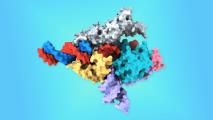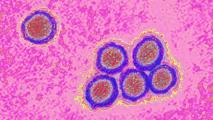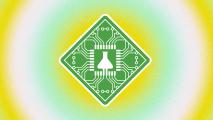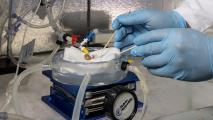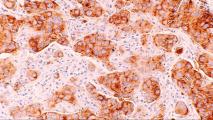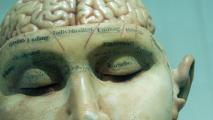
Biotech
Human history has been all but defined by death and disease, plague and pandemic. Advancements in 20th century medicine changed all of that. Now advancements in 21st century medicine promise to go even further. Could we bring about an end to disease? Reverse aging? Give hearing to the deaf and sight to the blind? The answer may be yes. And soon.
More
Drug to grow new teeth heads to human trials
A drug that causes animals to grow new teeth could one day allow us to regenerate teeth lost to injury, disease, or old age.
If you have a complex project, follow “Gall’s law” — or it will fail
Success can be based on the fundamental observation that working complex systems arise from working simple systems.
MIT’s vaccine-enhanced CAR-T cell therapy destroys solid tumors
Adding a cancer vaccine to CAR-T cell therapy, a revolutionary treatment for blood cancers, boosts its efficacy against solid tumors.
Quantum biology: Your nose and house plants are experts at particle physics
Quantum processes, normally associated with the very small or very cold, have been found to occur in biological systems. This was unexpected.
“Zombie” cells are the key to a tiny sea creature’s full-body regeneration
A tiny sea creature’s regenerative abilities add to the growing evidence that senescent cells aren’t always detrimental.
One shot of the klotho protein boosted memory in old monkeys
A single shot of klotho, a protein linked to longevity, improved the working memory of older rhesus macaques.
Can we train our taste buds for health?
Reformulating foods tailored to the plasticity of our taste buds could be a practical and powerful tool to promote health.
First CRISPR-like system discovered in animals
A CRISPR-like gene-editing system found in animals and other complex organisms has been used to edit human cells for the first time.
New meningitis vaccine is the first to cover new emerging strain
A new meningitis vaccine that protects against five bacterial strains outperformed an existing shot in a phase 3 trial.
Newly identified type of depression affects 27% of patients
Stanford University researchers have identified a new, hard-to-treat type of depression characterized by problems with cognition.
AI-developed drug for deadly lung disease reaches phase 2 trials
AI-driven drug development has led to the launch of phase 2 trials of a drug to treat idiopathic pulmonary fibrosis (IPF).
Sooner or later we all face death. Will a sense of meaning help us?
An awareness of our mortality can, paradoxically, move us to seek – and, if necessary, create – the meaning that we so desperately crave.
These shopping carts can tell if you have a common heart condition
A UK study found that ECG sensors placed in shopping cart handles can be used to detect atrial fibrillation (AFib).
Cryogenically frozen organs successfully transplanted into rats for the first time
Thanks to a new “nanowarming” technique, scientists have successfully transplanted cryogenically frozen organs into rats for the first time.
New AI-based theory explains your weird dreams
A new paper suggests that dreaming helps us generalize our experiences so that we can adapt to new circumstances.
“Backdoor” into the ear offers new hope for reversing deafness
A new study has unlocked a “backdoor” into the inner ear that could make administering gene therapies to restore hearing less risky.
Certain diets can starve cancer cells
Low-calorie, intermittent-fasting, and ketogenic diets all can lower the amount of blood glucose available to fuel cancer cells.
A simple tweak could improve treatment of a deadly herpes brain infection
Anti-inflammatory drugs could potentially prevent herpes encephalitis from causing permanent brain damage.
New obesity drug cut weight by 58 pounds in trial, making it the most effective yet
Eli Lilly announced results from a phase 2 clinical trial of the newest entrant in the obesity treatment space.
Nasal drops might prevent PTSD
New research shows that nasal drops of neuropeptide Y triggers extinction of fear memories in an animal model of PTSD.
Get inspired with the most innovative stories shaping the world around us.




















